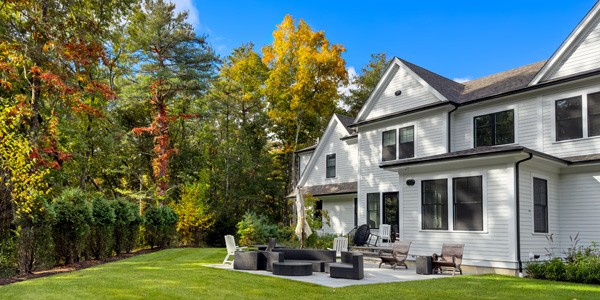As a financial planner, guiding clients through the decumulation phase of retirement comes with a unique set of challenges. Longevity risk, long-term care, inflation, sequence of returns, tax exposure, Social Security strategies, and overspending must all be addressed within a cohesive, sustainable plan.
The difficulty? Many Baby Boomers simply don’t have enough liquid assets to navigate all these concerns confidently. But they do have something incredibly valuable: home equity.
The Untapped Potential of Baby Boomer Equity
It’s estimated that Baby Boomers collectively hold nearly $18 trillion* in home equity—more than BlackRock’s total assets under management. That housing wealth is often overlooked in financial planning, despite being one of the largest and most stable assets many retirees own.
As an RICP® and Home Equity Retirement Specialist, I help financial professionals integrate the Home Equity Conversion Mortgage (HECM) into comprehensive retirement strategies. Originally designed for low-income seniors relying solely on Social Security, the HECM has evolved into a sophisticated financial tool that can provide flexibility, liquidity, and security when used thoughtfully.
Strategic Uses of Home Equity in Retirement Planning
Whether your clients are navigating portfolio withdrawals or planning for long-term care, home equity can enhance their outcomes in powerful ways:
1. Portfolio Management
Adding a HECM to any retirement income strategy—whether it’s a systematic withdrawal plan, flooring, or bucket strategy—can help reduce sequence of returns risk and extend the life of the portfolio.
2. Long-Term Care Planning
A HECM can provide tax-free* funds to self-insure or help pay premiums for long-term care insurance, protecting the portfolio from large, unexpected expenses.
3. Eliminating Mortgage Debt
Paying off an existing mortgage with a HECM can significantly reduce monthly expenses and lower the portfolio withdrawal rate, freeing up cash for other goals.
4. Moving in Retirement
The Lifestyle Home Loan (HECM for Purchase) enables clients to rightsize, downsize, or even upsize their home—without draining retirement accounts.
5. Social Security Optimization
A HECM can serve as a strategic bridge, allowing clients to delay Social Security benefits to age 70, replace a lost benefit when a spouse passes, or reduce IRMAA impacts by controlling taxable income.
6. Tax Management
Use home equity with Roth conversions, manage capital gains exposure, harvest deductions, or generate tax-free monthly income**.
7. Divorce Planning
In cases of gray divorce, a HECM can help divide home equity equitably while preserving retirement assets for both parties.
8. Sandwich Generation Support
If your client is supporting both aging parents and college-bound children, a HECM may be the right fit—for the parents—to relieve financial pressure and preserve your client’s own retirement plan.
A Tool for Modern Retirement Planning
A Home Equity Conversion Mortgage offers unmatched flexibility—diversifying funding sources, reducing market risk, controlling tax liabilities, and enhancing wealth preservation. It’s time for home equity to take its rightful place in the conversation.
If you’re interested in learning more, reviewing a client scenario, or co-hosting an educational event, I’d be happy to connect.
Bob Tranchell, RICP®
Home Equity Retirement Specialist | NMLS # 286716
Mutual of Omaha Mortgage
*https://blog.revaluate.com/18-trillion-in-home-equity-boomers-or-bust/#:~:text=Baby%20boomers%20with%20home%20equity,time%20is%20right%20for%20them.
**Consult a tax advisor to confirm tax treatment









